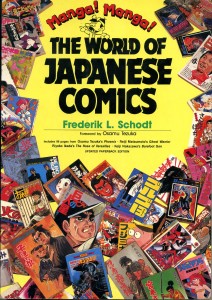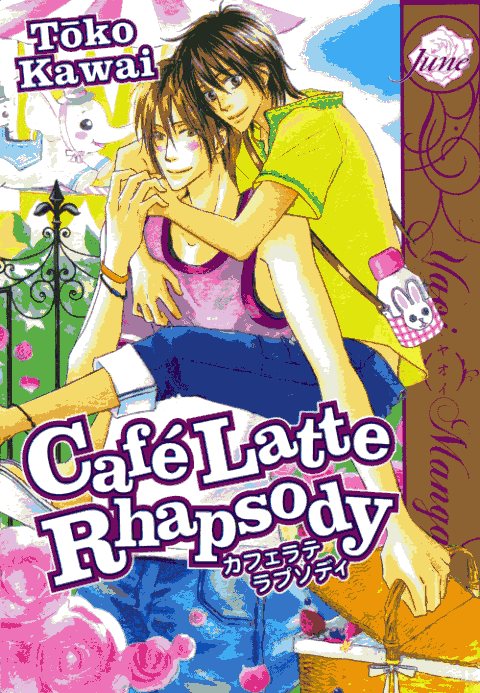For an introduction to this voting exercise, please see the article posted yesterday. The jurors were Derik Badman, Melinda Beasi, Johanna Draper Carlson, Shaenon K. Garrity, Tim Hodler, Chris Mautner and Bill Randall. They have been encouraged to post their personal choices (with accompanying remarks) on their own websites.
SIX VOTES
(1) Jason Thompson: The Other Love that Dare Not Speak Its Name (and other articles)
The jurors agreed to consolidate their votes into a single article. Other articles by Thompson which received interest were his pieces on Morality in Action Comics, Ceres: Celestial Legend and Happy Mania. His articles appear regularly at Anime News Network where his column “House of 1000 Manga” is published weekly. At least one of the jurors considers him the best writer on manga today. Voice your assent (or dissent for that matter) here.
FIVE VOTES
(1) Katherine Dacey on Ayako
Dacey is a mainstay of the manga blogosphere. Once again, the jurors decided to consolidate their votes into a single piece. The other article which received favorable attention was Dacey’s review of Sexy Voice and Robo & Harriet the Spy. Let her know which one you prefer.
(2) Joe McCulloch: Essay on Thought Balloons (The Problem with American Vampires is that Just Don’t Think”)
This is Jog’s second year on this list. The bulk of Jog’s writing is for the web and this appears to be both a conscious decision and a sign of the times. Now writing at Comics Comics, his output has slowed if compared to his days at Jog the Blog. This article was a strong early contender for the final list. Other articles of note in 2010 include his review of Alan Moore’s Neonomicon and his survey of the “comics” of Peter Greenaway. There can be little doubt that he is one of the most popular writers on comics working today.
FOUR VOTES
(1) Craig Fischer on David Mazzucchelli (Born Again Again).
Fischer is an Associate Professor of English at Appalachian State University. He also writes frequently about comics and film for academic venues. Does this mean he was slumming when he decided to write this piece on Mazzucchelli’s Asterios Polyp for this blog? Perish the thought!
THREE VOTES
(1) David Bordwell on Hergé (Tintinopolis)
Judging by the frequency with which his blog is linked to by various comics bloggers, Bordwell would appear to be a favorite for his thoughts on film and criticism in general.
(2) Dirk Deppey: The Mirror of Male-Love Love
This is Deppey’s second time on the list. He got on the list last year for his editorial on Paul Levitz which would be more accurately labeled as industry commentary. There’s no mistaking this year’s entry which may well be his most memorable article on comics in recent memory.
(3) Ken Parille: Casper, Formalism, and the ‘Great’ Search Party
Parille is an Assistant Professor of English at East Carolina University and is considered by some to be the foremost expert on the comics of Dan Clowes. No one practices the art of comics close reading as assiduously as Parille. The vote was initially split between Parille’s Casper piece and his review of Charles Burns’ X’ed Out. My personal preference is for the “losing” piece which at this point in time appears to be one of the few substantial reviews of Burns’ comic out there.
LINKS
(1) Derik Badman’s personal choices
(2) Melinda Beasi on the list and her choices
(3) Johanna Draper Carlson on the list and her choices
(4) Shaenon Garrity on the list and her choices
(5) Tim Hodler on the list and his choices
(6) Chris Mautner on the list and his choices
(7) Bill Randall on the list and his choices


